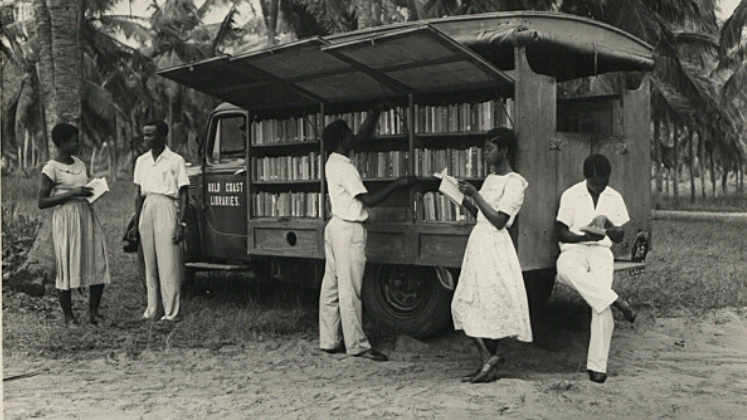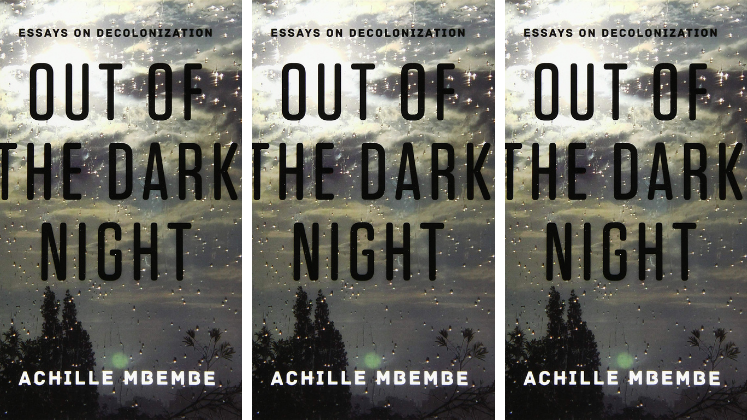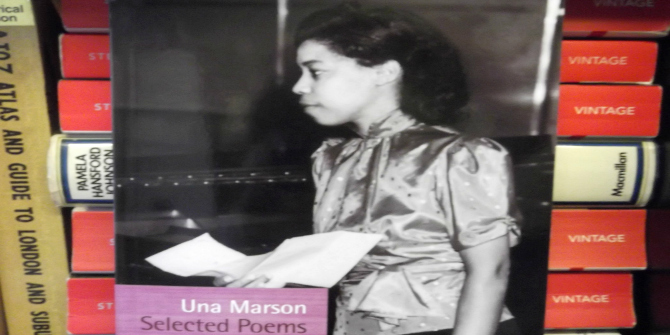As Nobel laureate Wole Soyinka publishes his first novel in 48 years, Bola Dauda and Toyin Falola offer a window on the literary giant, reflecting on their new book, Wole Soyinka: Literature, Activism, and African Transformation.
1 October 2021 is the start of Black History Month in the UK. LSE’s theme for 2021 is ‘BLACK 365’ and you can explore the events taking place at LSE this month.
Opening a Window on a Literary Giant: On Writing Wole Soyinka: Literature, Activism, and African Transformation
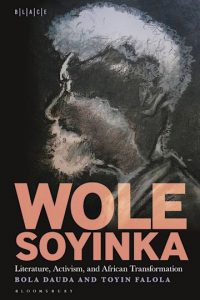 There are twice as many works on Wole Soyinka today to rival the total number of awards, distinctions and honours he has received in his lifetime. And as long as he is alive, we can expect twice as many more works on a figure who, without doubt, remains one of the most important literary giants of the twentieth and twenty-first centuries. Not many people achieve such feats in their lifetime! While it has become something of a ritual for a work to be published on Wole Soyinka somewhere around the world annually, not all provide the alimentary sauce that embodies all that is incontrovertible and controvertible about him.
There are twice as many works on Wole Soyinka today to rival the total number of awards, distinctions and honours he has received in his lifetime. And as long as he is alive, we can expect twice as many more works on a figure who, without doubt, remains one of the most important literary giants of the twentieth and twenty-first centuries. Not many people achieve such feats in their lifetime! While it has become something of a ritual for a work to be published on Wole Soyinka somewhere around the world annually, not all provide the alimentary sauce that embodies all that is incontrovertible and controvertible about him.
This newly published book, Wole Soyinka: Literature, Activism, and African Transformation (Bloomsbury, 2021), comes at an auspicious time. Kongi, as Wole Soyinka is widely known, marked his 87-year sojourn on earth this July with the usual shades of accolades in the public space. This new publication is somewhat proof of our participation in that celebratory mood, focusing on a figure whose socio-political engagements are worthy of praise. In co-authoring this book, we bring to bear our respective expertise in the social sciences and humanities, engaging critically with what we consider, with justification, the ‘unauthorized biography of Wole Soyinka’.
The book is divided into four parts. The first, ‘Introduction and Context’, contains two sub-themes. The first comprises a collection of a recent body of essays by a select number of writers to approximate how their different assessments of Soyinka exemplify his ideals and radical interventions. These are then merged to yield a frame that embodies Soyinka’s person and his works. The second theme examines Soyinka from a historical point of view. It captures his creative process, beliefs that incorporate the Yoruba cultural worldview and social engineering engagements.
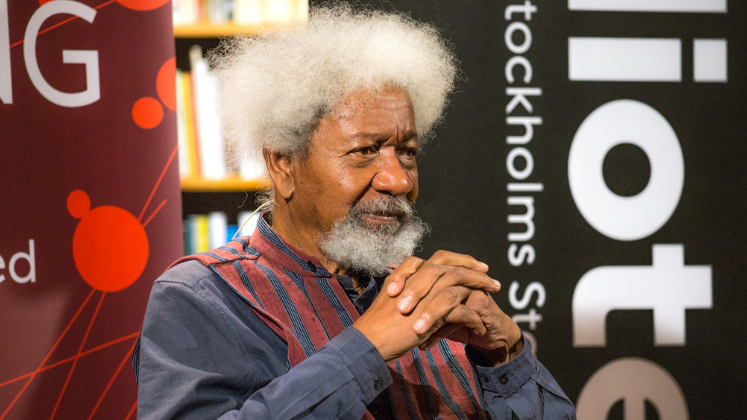
Image Credit: ‘1986 Nobel Prize winner in Literature Wole Soyinka during a lecture at Stockholm Public Library on October 4, 2018’ by Frankie Fouganthin licensed under CC BY SA 4.0
This takes us to the second part of the book, ‘Historical and Cultural Background’, where the reader is taken through Soyinka’s life from cradle to grace. We begin with his birthplace of Abeokuta where he was born into a privileged family and society that was modern in every sense of the word and even more so in comparison to other Yoruba communities, at least up until British colonial incursion. We point attention to Abeokuta’s role in moulding well-known Nigerian figures such as Funmilayo Ransome-Kuti, Fela Anikulapo-Kuti, Madam Efunroye Tinubu, Adetokunbo Ademola, Olusegun Obasanjo, Moshood Abiola and Ebenezer Obey. Soyinka’s academic pursuits and life accomplishments are narrated in this section, particularly his journey to winning the Nobel Prize in Literature in 1986 and his decision to use his newfound fame and the power of the pen to speak truth to power.
In the third part of the book, we probe recurring motifs in Soyinka’s novels, drama, poetry and the politics of his literature. We further explore the thematic concerns in these different literary genres which Soyinka uses to draw on issues that are historically, politically, philosophically and culturally relevant to the Nigerian and, indeed, African geopolitical reality. Soyinka’s drama texts draw upon different periods which account for the dominant everyday thematic preoccupations in his literary oeuvre, including corruption, neocolonialism, postcolonial disillusionment, inept leadership and cultural dilemmas, among others.
One aspect that we did not leave out is a discussion of Soyinka’s religious sphere of authority which is the Ogun pantheon and the ways or forms through which this deity exhibits multiple meanings. These serve as major devices used by Soyinka to exemplify germane issues that are predominant in the African society. Soyinka’s affiliation with Ogun dates back in time to one of the first, if not the very first, glimpses in his 1976 book, Ogun Abibiman. He uses this piece of literature to portray Ogun as the greatest of divinities with powers that could pave the way for the total liberation of the African continent. Soyinka deploys diverse poetic emblems such as repetition, correspondence and animal representations which are conceived to give Ogun a forceful place whereby society is reclaimed and rejuvenated against tyranny.
In the fourth and last part of the book, we examine the legacies of the literary icon through his contributions to literature and the use of language in his moral crusades and social activism against all forms of abuse. Soyinka’s works and life go beyond the borders of Nigeria, Africa and any praise endowed by his Nobel Laureate. This, we contend, is not merely due to Soyinka’s fame but because his actions continue to interest glocal, cross-continental and transnational audiences.
Wole Soyinka: Literature, Activism, and African Transformation is not only an important addition to the corpus of literature on Soyinka and his creative process in the last five decades, but it also offers an innovative platform to unfold yet another missing piece of the puzzle that he represents. The uniqueness of the book lies in its robust analysis and unusual approach and structure. The decision to examine the breadth and depth of the life and works of Soyinka based on issues (themes) rather than events (chronology) is a clear departure from previous works. The book will appeal to diverse interests and non-specialists who yearn for newer narratives and fresh perspectives on the literary icon.
There are several massive holes at the centre of knowledge about Soyinka’s creative process that should be filled. Being a giant of a man, close readings will not stop his work being critiqued, analysed, interpreted and interrogated. Being a giant of a man still after he is long gone, the combined weight of his literary corpus cannot be exhausted by those who cherish and appreciate his colossal contributions to humanitarianism, humanism and humanity. What we have done with our publication, like many others in the distant and recent past and in the distant and not-so-distant future, is open the window to view Soyinka through the knowledge he has shared with the glocal community, his activism that has no bounds or boundaries and, of course, his active support for universal access to rights and justice.
Note: This feature essay gives the views of the authors, and not the position of the LSE Review of Books blog, or of the London School of Economics and Political Science.



